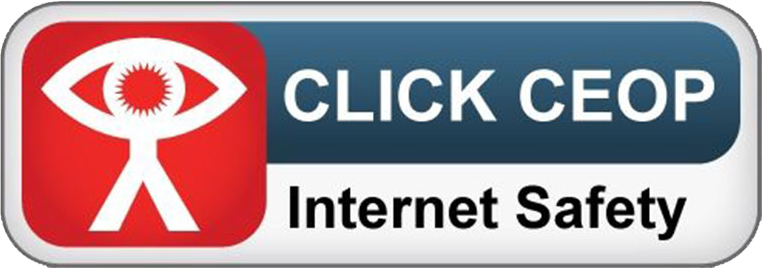English enables people to express themselves imaginatively and creatively and to communicate with others effectively. It is a key subject which enables people to develop the skills needed for daily life both socially and educationally. Competence in English is a life skill, which we develop, not only in English lessons but also throughout the whole curriculum.
At Three Ways School we endeavour to make learning relevant and fun and offer a tailored curriculum at three differentiated levels; formal, semi-formal and pre-formal using the Equals – My Communication schemes of work, National Curriculum Standards and the Three Ways School PMLD Curriculum. We also work towards OCR and AQA accreditations at Secondary and Sixth Form level, with the opportunity to work towards GCSE qualifications where appropriate.
Our English Curriculum covers speaking and listening (Speech and language interventions where appropriate), reading, spelling, grammar, punctuation, comprehension, writing and phonics.
Three Ways School offers a Total Communication Approach to ensure that all pupils are given an equal opportunity to access communication at their own level of understanding.
Three Ways School uses verbal language, Makaton, symbols, objects of reference, and a range of AAC devices to support both expressive and receptive communication.
Teaching staff work closely with the Speech and Language Therapy Team who provide an integrated in-house service to effectively implement a variety of communication systems throughout school including advisory target setting with class teachers, 1:1 sessions, specialist group and whole class sessions.
Pupils will:
• be taught to express themselves as clearly as possible to a range of listeners and in different situations using appropriate means including AAC.
• be taught to understand and respond to others including through the use of social stories.
• be taught to join in as members of a group and use conversational skills where appropriate.
• be taught to communicate verbally or non-verbally as appropriate.
• join in a range of drama activities, multisensory stories, Storysharing® sessions.
• be introduced to some of the main features of standard spoken English and encouraged to use them.
• be taught about language variation.
Storysharing® is a communication initiative used to encourage personal narrative in people of all ages who have Special Educational Needs. It is embedded in the Equals – My Communication scheme of work and supports in the following ways:
• Improves speaking and listening skills
• Develops social skills among peers
• Encourages group conversational skills
• Memory and event recall
• Sentence structure and sentence completion
• Developing story and personal narrative
• Develops emotional and social well-being as well as supports pupils in feeling a sense of pride and ownership over their own stories
At Three Ways School, Little Wandle is our agreed systematic synthetic phonics programme for primary and this will be expanding into secondary as primary pupils progress through the school.
We start teaching phonics in Reception and follow the Little Wandle Letters and Sounds Revised progression, which ensures pupils build on their growing knowledge of the alphabetic code, mastering phonics to read and spell as they move through school. This will enable fluency and continuity of teaching and learning from Early Years Foundation stage through to eventually the end of Key Stage 4.
For pupils, who are not yet able to access Little Wandle Letters and Sounds, we offer a wide selection of foundation phonics activities including sharing stories and poems, learning nursery rhymes and action rhymes, working on oral blending, tuning into sounds, Music in Me sessions, call and response games etc.
Reading is an extremely important element of education and should be encountered every day. Every class, according to the National Curriculum guidelines should be accessing reading, phonics, being read to, comprehension activities and guided reading DAILY. While at Three Ways School we appreciate that each of these elements can take an entire lesson to complete and we understand the nature of how they overlap, there should still be an effort made for pupils to access reading and set phonics & reading activities daily.
Reading is supported in a variety of ways including big books, sensory stories, story sacks, reading schemes and interventions and online resources including Collins Open Page which will enable teachers to set books for pupils to read at home on a PC or tablet.
We have a well-structured progressive handwriting programme focusing on the whole child, their needs and abilities. With specialist support and provision, pupils’ experience a multi-sensory, holistic approach to develop fine and gross motor skills on a daily basis, supporting the development of future pencil grasps when the pupil is ready. Pre-cursive handwriting is our agreed writing style across the whole school.
Pre-formal communication at Three Ways School is assessed and advised using the following assessment tools:
• Routes to Learning
• Engagement Model
• EfL Assessment in Ranges, linked to EYFS curriculum
• Affective Communication Assessment (ACA)
Pupils working at a pre-formal level are encouraged to develop differentiated like/dislike, want/reject responses, express anticipation supported through burst/pause technique and develop shared attention through:
• Intensive Interaction
• Story Sharing
At Three Ways School, pre-formal communication is aided and advised by the Speech and Language Therapy Team and the Three Ways PMLD Curriculum.
English will be assessed by using:
• Teacher assessment including Plans for Learning targets, supported by the Speech and Language Team
• Pupil self-evaluation
• EfL assessment using Ranges and Tiers
• Regular phonics assessments
• Teacher-led monitoring of reading scheme progression
• SATS, AQA, OCR, Pearson, TQUK and GCSE qualifications where appropriate
• Staff will moderate samples of work to ensure consistency in levelling.


